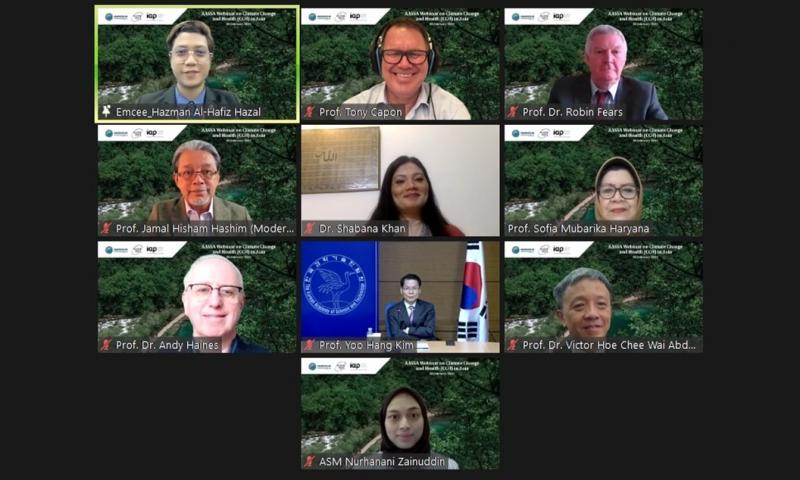Climate change have a significant threat to Malaysia & other countries in the Asia region
Malaysia and the other countries in the Asia region will have a significant threat to the human health posed by the effect of climate change. The report “The Imperative of Climate Action to Promote and Protect Health in Asia” by the Association of Academies and Societies of Sciences in Asia (AASSA) highlighted insufficient awareness of how climate change affects human health through various pathways.
The report, which was published and launched in October 2021 during the recent 26th United Nations Climate Change Conference (COP26), also reveals the impact of climate change on the human immune system, which is likely to weaken the immune system and make populations, especially children, more susceptible to recurring infections, allergies, and development of autoimmune diseases as well as cancer.
AASSA Webinar on ‘Tackling Adverse Effects of Climate Change on Health in the Asian Region’ today shared the findings. This webinar also provided a snapshot of the current situation and presented science-based recommendations for the region. The webinar is hosted by the Academy of Sciences Malaysia, an agency under the purview of the Ministry of Science, Technology, and Innovation.
The report’s findings added that Asia and Oceania, which experiences a full range of global climate variations, has been identified as one of the most vulnerable regions in the world to the effects of climate change. While direct health impacts, such as mortality from heat and flood, are well recognised, there is a lack of comprehensive understanding of direct and indirect health impacts because of their complex causal pathways.
Among the recommendation highlighted is that although individual action plays a crucial role in adaptation to climate change, political will by governments is demanded to transform societies. Decision-makers should focus their attention on protecting human health against the high-level impacts of climate change. While providing solutions to the harmful effects of climate change on health, authorities should also produce solutions covering global health risks and all segments of society.
The initiative of this report kicked off on 4-5 November 2019, where experts and representatives of four InterAcademy Partnership (IAP) regional networks - AASSA (Asia), EASAC (Europe), IANAS (the Americas) and NASAC (Africa) convened in Halle, Germany for the first IAP Global Project on Climate Change on Health (CCH) meeting.
Following that, the Academy of Sciences Malaysia, as the lead for AASSA’s Working Group on CCH, has then organised a series of regional workshops to clarify the regional focus area and make a regional analysis for CCH to formulate the science-based recommendations, accordingly, drawing together experts from 16 Asia and Oceania countries such as Indonesia, Japan, India, Nepal, Australia and Turkey.
The webinar organised is part of a series of four webinars in which the IAP and its regional networks will launch their reports on tackling the effects of climate change on health. The webinars in this series are designed to inform researchers, policymakers, and the interested public in the respective regions about the effects of climate change on health and discuss the option for tackling these challenges.
The webinar also previewed the upcoming IAP Global Report on CCH, expected to be published in March 2022. The executive summary and the full report of “The Imperative of Climate Action to Promote and Protect Health in Asia” can be downloaded on the links provided below.
Executive summary: https://www.interacademies.org/publication/imperative-climate-action promote-and-protect-health-asia-executive-summary
Full report: https://www.interacademies.org/publication/imperative-climate-action-promote-and protect-health-asia

This content is provided by Academy of Sciences Malaysia.
RM12.50 / month
- Unlimited access to award-winning journalism
- Comment and share your opinions on all our articles
- Gift interesting stories to your friends
- Tax deductable
